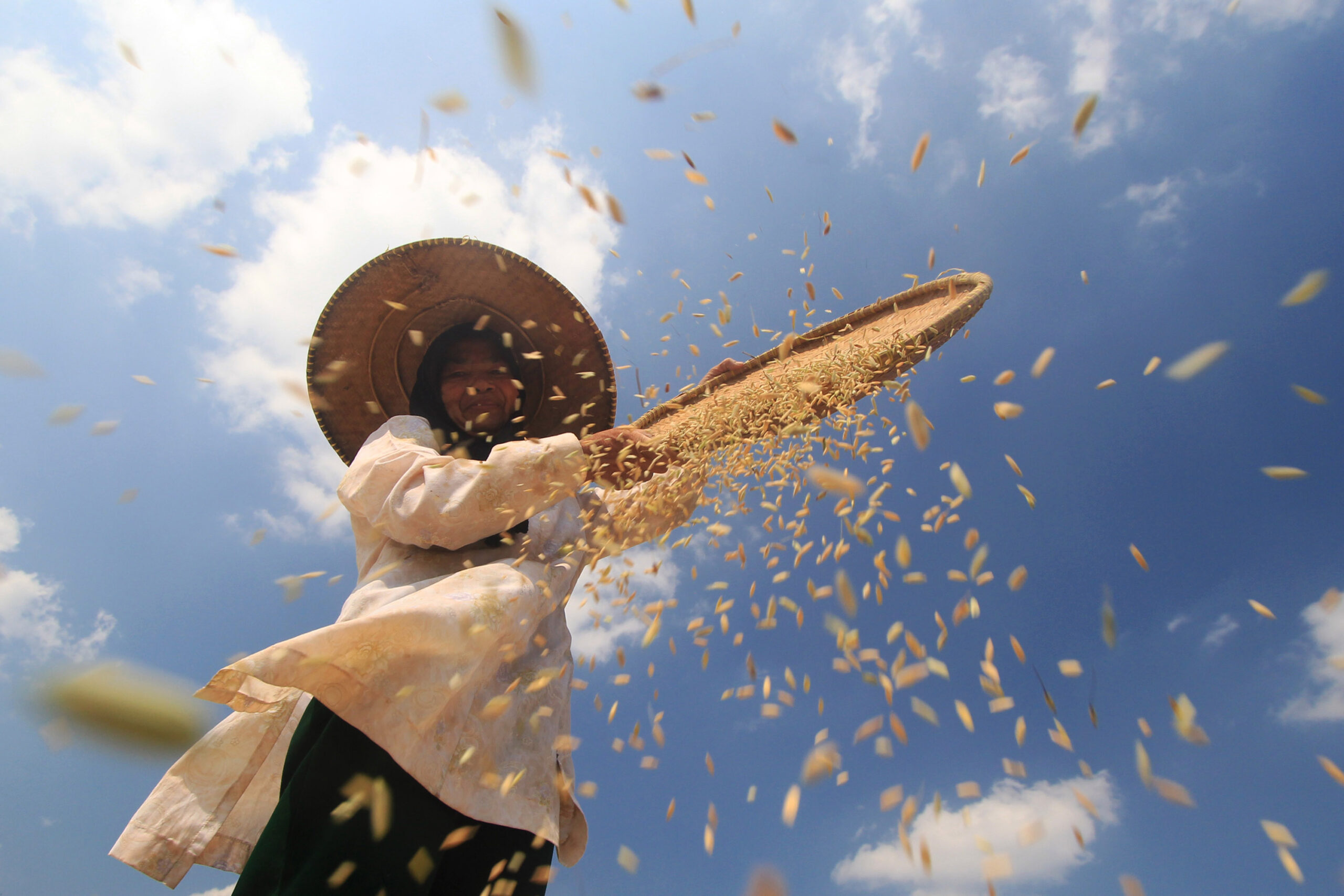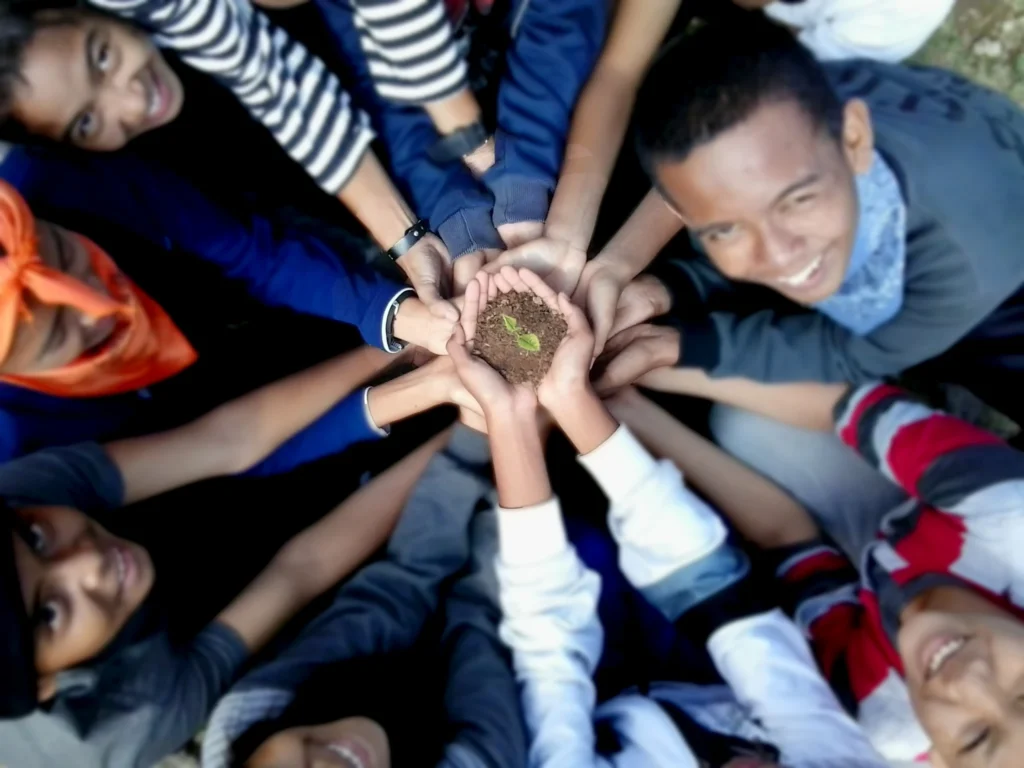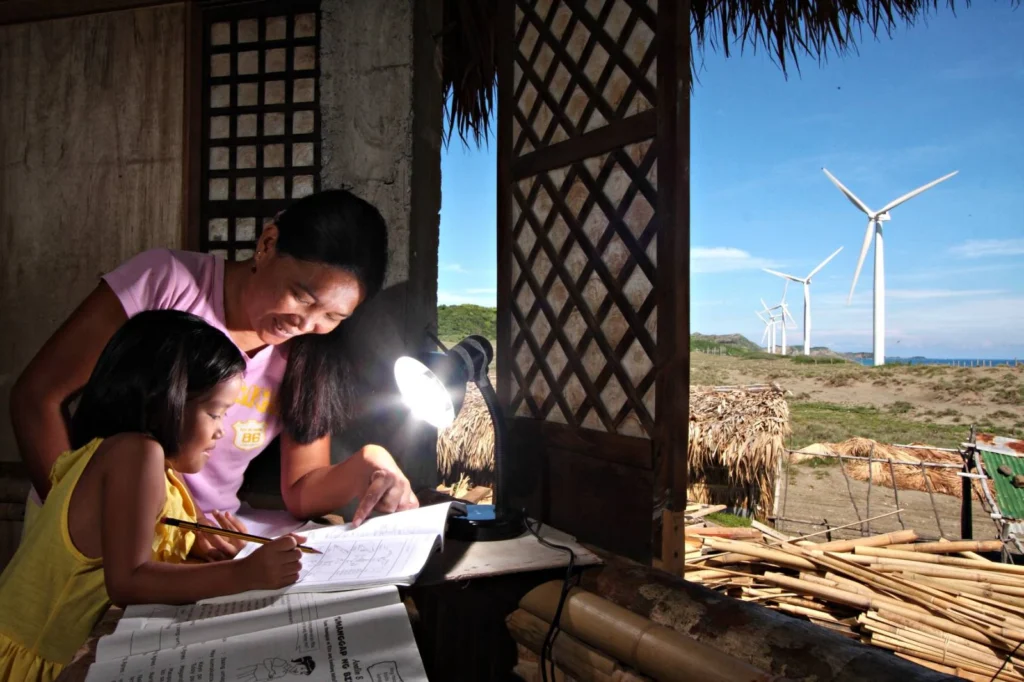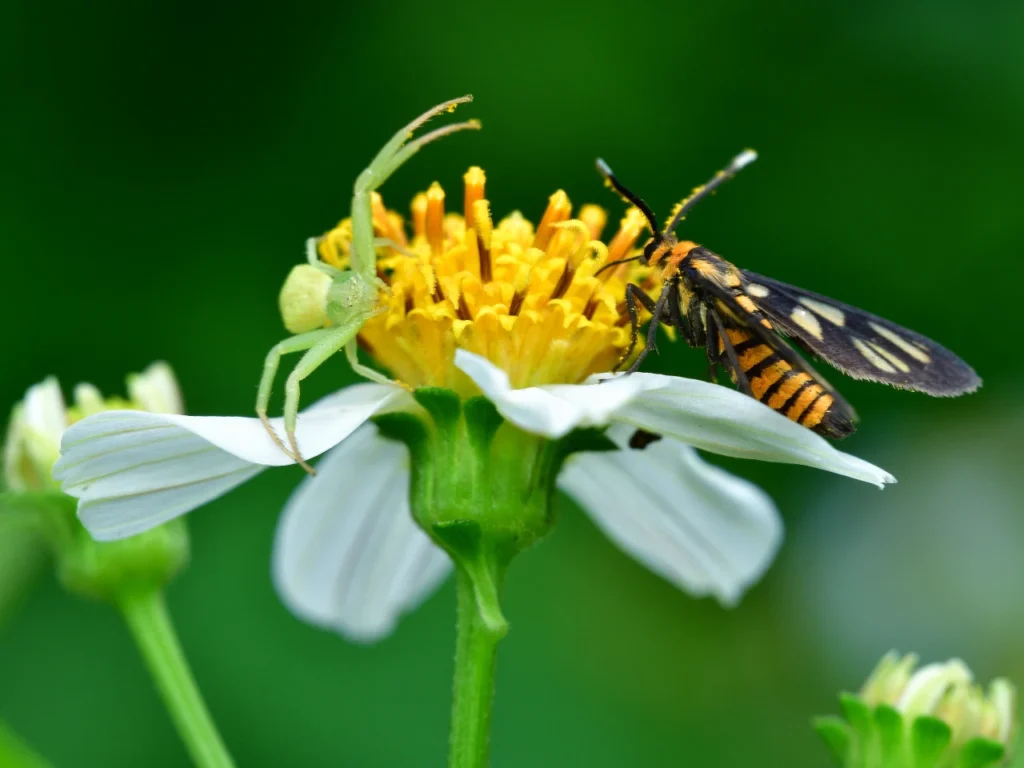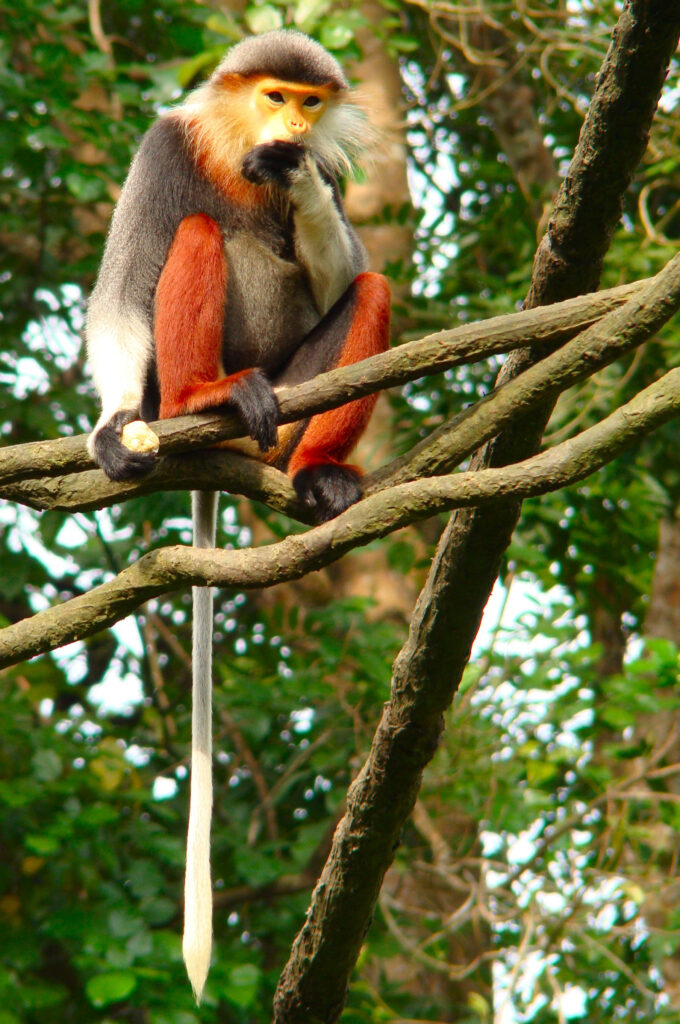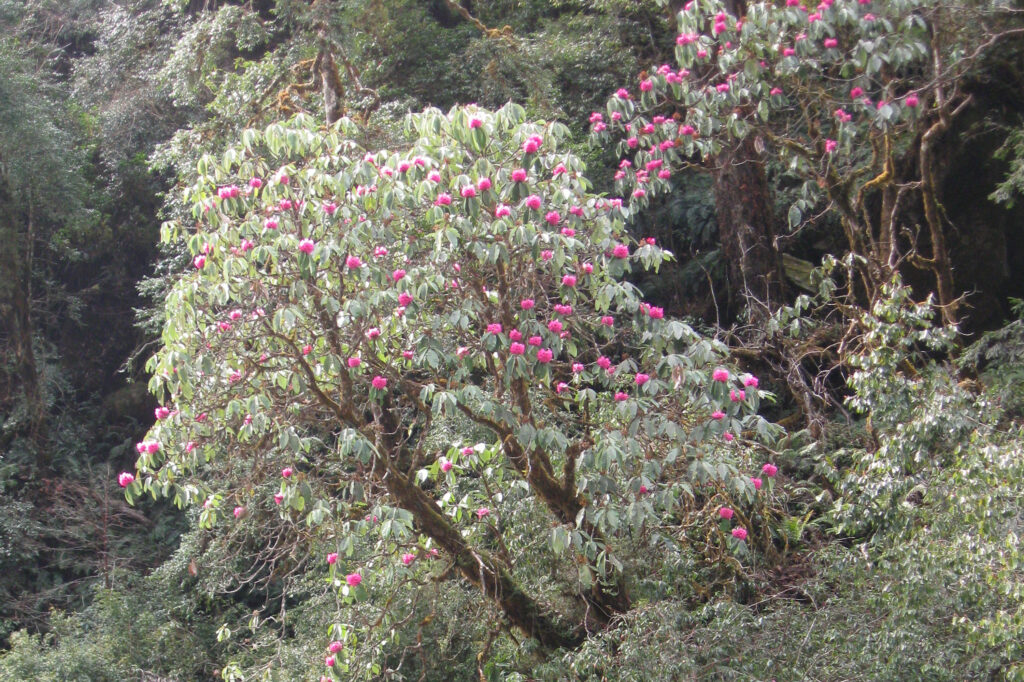At its thirteenth meeting, the CBD Conference of the Parties (COP) adopted a decision on mainstreaming, including actions for the sectors of agriculture, forests, fisheries and tourism; cross-sectoral policies; engagement in relevant international processes; and the role of key actors including the business sector. Further, the COP 14 continued to recognize that mainstreaming is critical for achieving the objectives of the CBD and stressed the importance of mainstreaming biodiversity in the sectors of energy and mining, infrastructure, manufacturing, and processing for halting the loss of biodiversity. The Conference also recognized the role of the business and financial sectors, IPLCS, civil society, local and subnational governments, academia, as well as women, youth, and other relevant stakeholders in promoting and implementing the mainstreaming of biodiversity.
The ACB will work with the AMS to ensure the mainstreaming of biodiversity in the entire ASEAN integration and development processes. The ACB will support both regional and national activities that will mainstream biodiversity in: (i) agriculture; (ii) forestry; (iii) fisheries and aquaculture; (iv) tourism; (v) cities and urban development; (vi) health; (vii) energy, mining and infrastructure, manufacturing and processing; and (viii) education.
- Agriculture
Biodiversity and ecosystems services are essential for agriculture, food security, and poverty alleviation. Sustainable agricultural production systems play a key role in biodiversity conservation. Mainstreaming biodiversity in agricultural policies is not only essential to halting biodiversity loss but in maintaining the ecosystem services that healthy biodiversity provides to agriculture. This would entail sustained cooperation across the sectors of environment, agriculture, and including education. To facilitate mainstreaming biodiversity in agriculture, the ACB will coordinate the implementation of the following proposed actions in partnership with the ASEAN Member States and key development partners building on the draft Roadmap and Framework for Mainstreaming Biodiversity in the Agriculture Sector in ASEAN, with initial inputs from the AMS participants in May 2023:
- implementation of the full or key components of the Roadmap and Framework to advance cross-pillar and multisectoral collaboration plans, programmes, and activities;
- implement education and training programmes including curriculum development (i.e. distance learning, inclusion of modules in existing curriculum), agricultural extension services, training on in/ex situ conservation, and related workshops/seminars);
- promote common understanding of agrobiodiversity through social media, online platforms, training manuals and guides, forums, and sharing of best practices; and
- conduct studies to assess and consolidate best practices and existing policies on agrobiodiversity and the typology of agrobiodiversity, and other technical assessment methods, such as spatial mapping.
- implementation of the full or key components of the Roadmap and Framework to advance cross-pillar and multisectoral collaboration plans, programmes, and activities;
- Forestry
Forest biodiversity supports the maintenance of ecosystem services and functions that contribute to sustainable development, poverty eradication, and enhanced human well-being, as well as the mitigation of and adaptation to climate change. The ACB will endeavor to mainstream biodiversity conservation into the forestry sector through the:
- promotion of sustainable forest management as an integral part of protected area management;
- development of cross-sectoral and transboundary collaboration mechanisms for the sustainable management of the region’s forest ecosystems;
- restore ecosystem through the ASEAN Green Initiative, which is a contribution to the celebration of the UN Decade on Ecosystem Restoration;
- implementation climate change adaptation activities, including forests as nature-based solutions; and
- enhancement of networks through existing platforms and mechanisms.
- promotion of sustainable forest management as an integral part of protected area management;
- Fisheries and Aquaculture
The increasing complexity of marine issues including pollution (e.g. marine litter) and continued destructive and illegal fishing in the region affects both marine ecosystems and habitats, and fisheries. The connectivity of the seas of the ASEAN presents an opportunity to increase marine conservation through networks of marine protected areas, including marine AHPs, and programmes that address various threats to coastal and marine ecosystems.
Coastal and marine environments support fisheries and aquaculture – important economic activities that promote food security and reduction of poverty in coastal areas. However, unsustainable fishing and aquaculture practices have brought about degradation of important coastal and marine ecosystems, such as mangroves, seagrass, and coral reefs. Recognising that a healthy coastal and marine environment are essential to sustainable fisheries production, the ACB will promote mainstreaming of biodiversity into the fisheries and aquaculture sector through the following:
- explore collaboration with existing regional mechanisms such as the ASEAN Ministerial Meeting on Agriculture and Forestry (AMAF) of the AEC as well as national level structures to facilitate closer cooperation between the environment and fisheries sector and ensure complementarity of interventions from both the conservation and management and production perspectives; and
- facilitate the promotion of the Ecosystems-based Approach to Fisheries Management (EAFM) to address fishery conservation issues including illegal, unreported and unregulated (IUU) fishing in partnership with Regional Fisheries Management Organisations (RFMOs).
- explore collaboration with existing regional mechanisms such as the ASEAN Ministerial Meeting on Agriculture and Forestry (AMAF) of the AEC as well as national level structures to facilitate closer cooperation between the environment and fisheries sector and ensure complementarity of interventions from both the conservation and management and production perspectives; and
- Tourism
Ecotourism is an important economic activity that provides opportunities for visitors to experience nature and learn about the importance of biodiversity conservation and local cultures. It generates income for businesses and economic benefits for communities living in rural and remote areas. However, when left unmanaged and coupled with irresponsible business practices, ecotourism activities may result in habitat destruction, over-exploitation, and pollution. To ensure biodiversity conservation is integrated in tourism business operations in the region, the ACB will:
- promote sustainable tourism in AHPs, including building the necessary capacities among staff in AHPs and other PAs in understanding the sustainability values of the ecotourism approach and modes of its implementation including the determination of carrying capacities of AHP for ecotourism activities (see also Capacity Development and Knowledge Management);
- support national level activities such as the conduct of national consultations to facilitate mainstreaming of biodiversity in the tourism sector; and
- document and compile best practices and case studies on mainstreaming biodiversity in the tourism sector to provide evidence to inform setting up or enhancing enabling policies and incentives to be incorporated in the tourism plans and actions at the sites, national and regional levels; and as basis for capacity building programmes and activities for local stakeholders.
- promote sustainable tourism in AHPs, including building the necessary capacities among staff in AHPs and other PAs in understanding the sustainability values of the ecotourism approach and modes of its implementation including the determination of carrying capacities of AHP for ecotourism activities (see also Capacity Development and Knowledge Management);
- Cities and Urban Development
The ACB will work on sustainable cities and urban development through the application of the Singapore Index on Urban Biodiversity. Specifically, the ACB will:
- conduct consultation with selected AMS city governments to develop proposals on promoting green spaces, green infrastructure, urban greening, and biodiversity conservation;
- identify key cities across all AMS which may be inclined to use the Singapore Index; and identify key cities across all AMS which may be inclined to use the Singapore Index; and
- conduct an assessment of the readiness of key ASEAN cities to take on and integrate the goals of biodiversity conservation and other key principles.
- conduct consultation with selected AMS city governments to develop proposals on promoting green spaces, green infrastructure, urban greening, and biodiversity conservation;
- Health
Biodiversity and healthy ecosystems support healthy communities and societies. Biodiversity and well-functioning ecosystems provide goods and services essential to human health. Understanding the link between biodiversity and human health by strengthening collaboration between the health and biodiversity sectors is a key step towards enhancing the conservation, sustainable use, and management of biodiversity to maximise co-benefits for health and biodiversity across the ASEAN community. To this end, ACB will conduct activities related to mainstreaming biodiversity into the health sector. Taking note of the KM GBF’s recommendation to consider the One Health Approach, among other holistic approaches in order that it will enable the mobilisation of multiple sectors, disciplines, and communities to work together and aim to sustainably balance and optimise the health of the people, animals, plants, and ecosystems, the ACB will undertake the following actions:
- Biodiversity and health communication
- intensify the communication, education and public awareness activities on the nexus of biodiversity and health and on the role of biodiversity in preventing future pandemics using the One Health approach;
- conduct policy advocacy, particularly policy forums, to link biodiversity, health, and broader well-being and development issues to synergise efforts of various policy bodies; and
- document and compile best practices and case studies on mainstreaming biodiversity in the health sector.
- Multi-sectoral Collaboration in Biodiversity and Health
- facilitate consultations and dialogues with stakeholders from the agriculture, transport, tourism, trade and industry, infrastructure, youth and education sectors;
- establish a network of centers of expertise on health and biodiversity within existing institutions in different countries in the region;
- support dialogue among ministries and agencies responsible for the sectors of health, environment, pollution, pesticides, antimicrobial resistance, agriculture, nutrition and food security, food safety, planning, climate change adaptation and mitigation, and disaster risk reduction to foster integrated approaches on biodiversity and health linkages;
- enable private sector partnerships and collaboration on biodiversity and health initiatives;
- Biodiversity and health research, and capacity building
- coordinate with institutions on research and capacity building initiatives on One Health, focusing on biodiversity and health nexus: traditional medicine, food and nutrition including agrobiodiversity, zoonotic diseases, biodiversity and health planning;
- conduct scoping research/study on interlinkages of wildlife, biodiversity and health.
- conduct of capacity building for the biodiversity, wildlife, and environment sectors on One Health
- Biodiversity and health harmonised plans, policies and programmes
- harmonise biodiversity and health policies, plans and programmes in AMS by facilitating and coordinating the integration of One Health in National Biodiversity Strategy Action Plans (NBSAPs).
- Biodiversity and health communication
- Energy and Mining, Infrastructure, and Manufacturing and Processing
The fast rate of economic growth in ASEAN could have significant implications for biodiversity. The development sectors (such as energy and mining, infrastructure, manufacturing and processing sectors) are expected to grow significantly over the coming decades due to population growth, economic development, trade, and increasing urbanisation. The ACB will support mainstreaming biodiversity in the energy and mining, infrastructure, manufacturing and processing sectors through the following:
- conduct regional consultations and workshops to identify entry points on mainstreaming; and document best practices and case studies on business and biodiversity;
- facilitate dialogues between the business and biodiversity sectors and identify areas for partnerships and networking;
- support national-level review of existing laws, legal frameworks, policies, and practices, including the application of best practices on environmental impact assessments to address potential impacts on biodiversity from these sectors; and
- collaborate with relevant ASEAN bodies through the ASEAN Ministerial Meeting on Environment (AMME), ASEAN Senior Officials on Environment (ASOEN), ASEAN Working Group on Nature Conservation and Biodiversity (AWGNCB), and AEC and national level agencies in mainstreaming biodiversity into the energy and mining, infrastructure, manufacturing, and processing sector.
- conduct regional consultations and workshops to identify entry points on mainstreaming; and document best practices and case studies on business and biodiversity;
- Education
Caring for and maintaining biodiversity in all ecosystems and habitats improves the resilience of these habitats, promotes the sustainability of production, and ensures that the ecosystem services of these habitats are maintained. The principles and practice of biodiversity conservation is not as large scale or as widely understood as necessary in the ASEAN region. Thus, there is a need to mainstream biodiversity concepts and values consistent with living in harmony with nature in key entry points such as the educational system, in alignment with the Education for Sustainable Development (ESD) approach. The ACB will support the AMS in mainstreaming biodiversity in the education sector through the following:
- coordination with the ASEAN Working Group on Environmental Education (AWGEE) and other ASEAN sectoral bodies and institutions dealing with the education sector such as ASEAN Education Ministers Meeting (ASED), ASEAN Senior Officials on Education (SOM-ED), and the Southeast Asian Ministers of Education Organization (SEAMEO) on the possible integration of biodiversity in the ASEAN Environmental Action Plan;
- Support the development of an education agenda for AMS that integrate biodiversity; and,
- Support the development and production of the necessary learning materials based on the developed educational curricula
- coordination with the ASEAN Working Group on Environmental Education (AWGEE) and other ASEAN sectoral bodies and institutions dealing with the education sector such as ASEAN Education Ministers Meeting (ASED), ASEAN Senior Officials on Education (SOM-ED), and the Southeast Asian Ministers of Education Organization (SEAMEO) on the possible integration of biodiversity in the ASEAN Environmental Action Plan;






















